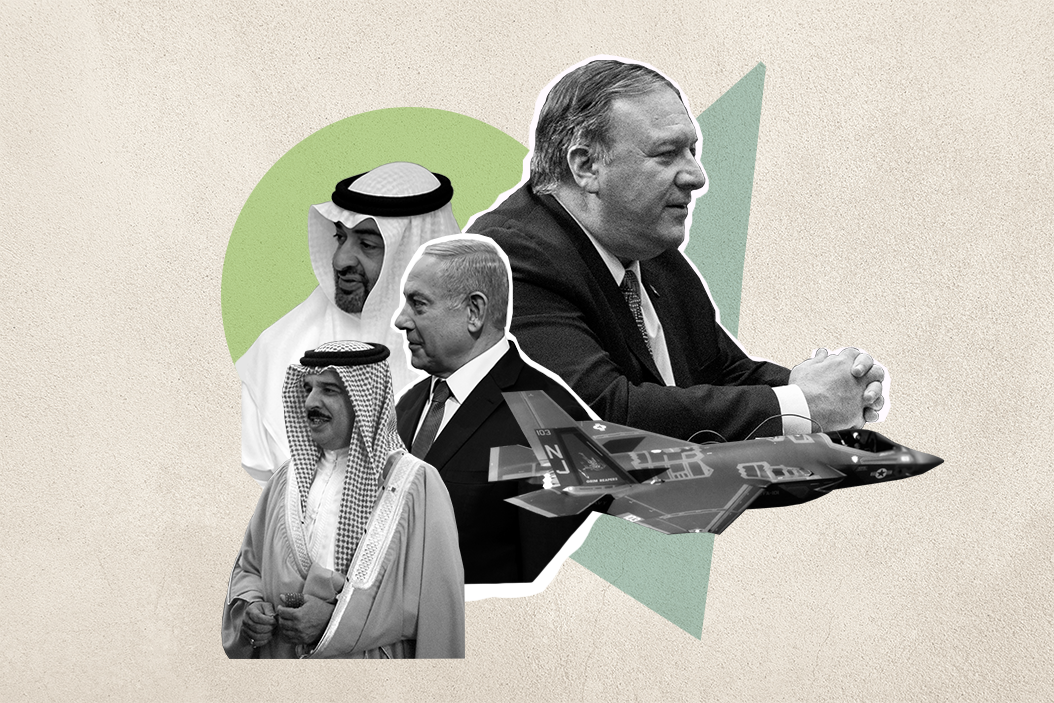US Secretary of State Mike Pompeo is on a very important mission right now. This week he is visiting four countries in the Middle East and Africa. Two of them, the United Arab Emirates and Israel, have recently moved to normalize ties in a historic deal recently brokered by the Trump administration. The other two — Sudan and Bahrain — are rumored to be looking at forming closer ties with Jerusalem as well.
What is it that each country involved wants out of Pompeo's trip? Is this really just about building a united Israeli-Arab front against Iran or are there other interests at work? Here's a look at the key players.
The United Arab Emirates: Shared concerns over Iran's destabilizing regional activities — and its proxy forces in Syria, Lebanon and Iraq — have long facilitated backchannel cooperation between the Israelis and Emirates. But mutual enmity towards Iran is hardly the only reason why UAE wants better ties with Israel.
For years, Abu Dhabi has tried to buy sophisticated F35 fighter jets (and advanced weaponry) from Washington, but the US — committed to ensuring that Israel maintains a "qualitative military edge" in a volatile region — has refused, even when the Emirates have thrown more money on the table. But now, in acquiescing to American demands and normalizing ties with the Jewish state, Abu Dhabi has reportedly convinced Washington to honor their weaponry wishlist.
Bahrain: The small Gulf state has long shown an interest in normalizing ties with Israel, in order to both capitalize on economic opportunities with Israel-based tech innovators, as well as to deepen ties with Washington. Indeed, while most Arab capitals rejected the Trump administration's Middle East peace plan earlier this year, Bahrain supported it, and even hosted a US-sponsored economic conference that brought Arab and Israeli businesspeople together.
Iran looms large in the Bahraini royal family's calculations here. That's because Bahrain is at the forefront of Sunni-Shi'ite sectarianism: it is a Shia majority country with a Sunni monarchy that faced massive challenges to its rule at the peak of the Arab Spring — agitation it believes Iran was behind. For Bahrain, closing ranks with Saudi Arabia, the UAE, and Israel to push back against Tehran isn't only a foreign policy matter, it's an issue of national security.
Sudan: Cash-strapped Khartoum has long suffered under US sanctions over its support for terrorist groups under former strongman Omar al-Bashir (including a stint in the 1990s when it harbored Osama bin Laden). Losing the country's oil-rich south, which seceded in 2011, hasn't helped. At the moment, the country, which recently had a revolution of sorts, is desperately seeking removal from the US terrorism blacklist so that it can access much-needed financial support from the US, Europe, and lenders like the IMF and the World Bank.
Sudan's new government, which came to power after al-Bashir was ousted in 2019, likely figures that pursuing normalization with Israel will endear it to power-brokers in Washington who can lift those sanctions. (It's worth noting that after Pompeo's visit to Khartoum on Tuesday, Sudan's government said that it cannot move towards full normalization with Israel until the transition period in Sudan ends and fresh elections are held in late 2022.)
Israel: For Israeli Prime Minister Benjamin Netanyahu — currently plagued by corruption charges, as well as twin economic and political crises — making peace with longtime rivals in the Gulf is a formidable foreign policy achievement he can tout to critics back home, presenting himself as the country's perennial "statesman."
It's also a way for the hawkish Israeli government to disprove the naysayers who have said for years that the path to normalization with the Arab world was only through compromise on the Palestinian issue.
Bottom line: If the Trump administration can pull off broader Arab-Israeli normalization, it could give the White House a big boost before the November 3 elections as he struggles to keep up in the polls.
